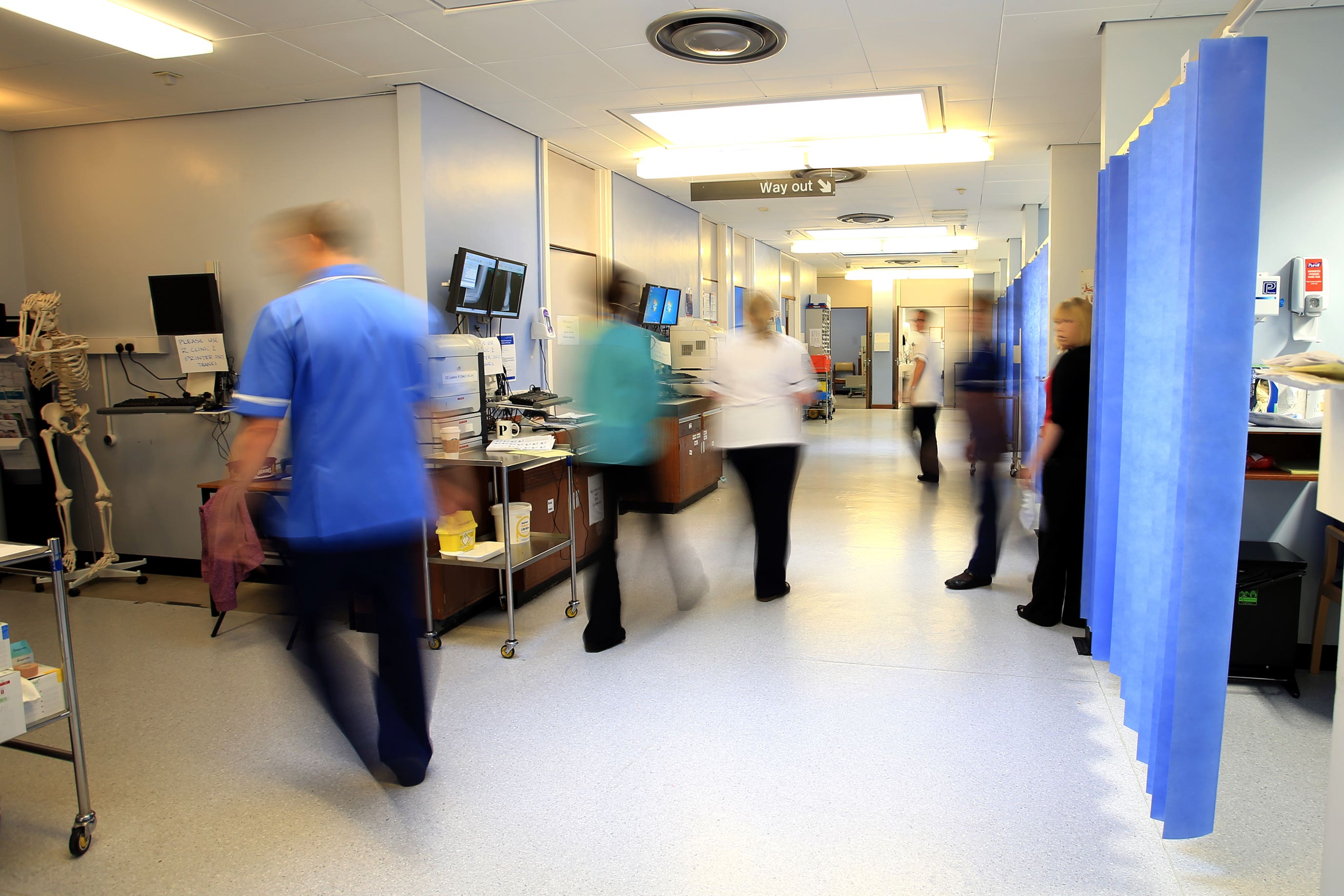NHS waiting list in England hits record 7.5 million
‘Long waits for treatment are unacceptable and 20,000 children waiting over a year is unfathomable,’ warns Dr Camilla Kingdon

Your support helps us to tell the story
From reproductive rights to climate change to Big Tech, The Independent is on the ground when the story is developing. Whether it's investigating the financials of Elon Musk's pro-Trump PAC or producing our latest documentary, 'The A Word', which shines a light on the American women fighting for reproductive rights, we know how important it is to parse out the facts from the messaging.
At such a critical moment in US history, we need reporters on the ground. Your donation allows us to keep sending journalists to speak to both sides of the story.
The Independent is trusted by Americans across the entire political spectrum. And unlike many other quality news outlets, we choose not to lock Americans out of our reporting and analysis with paywalls. We believe quality journalism should be available to everyone, paid for by those who can afford it.
Your support makes all the difference.NHS waiting lists in England have climbed to a record level, according to new figures that show 7.47 million patients were waiting to start routine hospital treatment at the end of May, up from 7.42 million at the end of April.
The growing list includes 416,000 children waiting to start treatment – up 9.7 per cent in just one month, and including 21,282 who have been waiting more than a year.
Royal College of Paediatrics and Child Health president Camilla Kingdon said it is “unacceptable” and “unfathomable” to have so many children waiting so long.
Prime Minister Rishi Sunak has made cutting waiting lists one of his priorities for 2023, pledging in January that “lists will fall and people will get the care they need more quickly”.
However, hospital leaders warned on Thursday they are not confident they will hit key NHS targets to reduce the waiting list in 2024 and 2025.
The figures come during a five-day junior doctors’ strike during which tens of thousands of operations and appointments are expected to be cancelled and ahead of NHS consultants’ strikes where the major of planned care is expected to be paused.
In a letter to hospital leaders on Wednesday, the British Medical Association advised members that non-emergency care should not be scheduled during strike days and that trusts should plan for this.
The letter added: “Almost no activity in a hospital can occur unless it is listed under and supervised by a named consultant. Non-consultant and non-medical staff should not be put in a position where they are asked to perform elective work where this is not under the direction of a named consultant or outside of their competencies.”
Earlier this year, The Independent revealed the children’s waiting list had been growing at double the rate of adults with fears young people were being deprioritised.
Responding to the latest rise, Dr Kingdon said: “As a paediatrician, I have seen firsthand the damaging impact that long waiting times have on children and their families. Many treatments and interventions must be administered within specific age or developmental stages – no one wants to wait for treatment, but children’s care is frequently ‘time critical’. As a college, we have consistently warned that prolonged waits not only impair children’s mental and physical development but also have a detrimental impact on their education and overall wellbeing. Long waits for treatment are unacceptable and 20,000 children waiting over a year is unfathomable.
“Each month we seeing steady progress being made in shrinking the adult backlog which we commend, but the children’s list continues to rise at an unprecedented rate.”
Of those on the overall waiting list, 385,022 patients have been waiting more than 52 weeks, up from 371,111 in April. The government earlier this year pledged to eliminate the number of patients waiting more than a year by March 2025.
Figures show around 30,600 cancer patients were waiting more than 62 days for a diagnosis and treatment.
Meanwhile, a total of 58.7 per cent of cancer patients who had their first treatment in May after an urgent GP referral had waited less than two months, down from 61 per cent in April, NHS England figures show. The target is 85 per cent.
Cancer Research UK’s chief executive, Michelle Mitchell, said: “These figures not only represent excruciating waits for already anxious patients, they also expose overstretched NHS services.
“Meanwhile, ongoing strike action continues to cause worry for patients and we implore all parties to work together to ensure that services continue to operate for cancer patients.”
Professor Sir Stephen Powis, NHS national medical director, said: “Every new month brings more evidence of record demand across many areas of NHS care with staff experiencing the busiest June ever for A&E attendances, no doubt exacerbated by the record high temperatures experienced for that month.
“We are entering an incredibly challenging period of industrial action, with the longest junior doctor strike action so far followed by a consultant walk-out and the added impact of radiographers striking at the end of the month. So while staff will continue to work hard to provide patients with the care they need there is no doubt this period of action is likely to have the biggest impact yet.”


Join our commenting forum
Join thought-provoking conversations, follow other Independent readers and see their replies
Comments